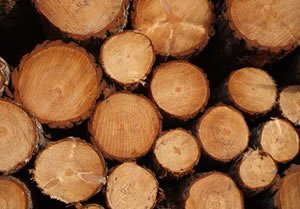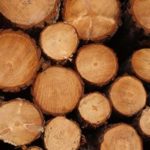
We at J. Gibson McIlvain pride ourselves on the quality of the lumber we sell, and it has always been a priority to take great care (one might say “due care”) to ensure we are importing from legal suppliers and mills with a strong focus on forest conservation and sustainability. It seems that this priority has served us well when we examine the Gibson compliance program guidelines. Let’s look at the part of the Gibson program, and I will outline J. Gibson McIlvain’s policy for each part. Let me be clear when I say that these policies have been in place for decades, and we have not altered anything we do in response to this settlement between Gibson Guitars and the DOJ.
The Gibson Guitar Lacey Act Compliance Program
(Gibson policies in bold, McIlvain policies below each point)
1. Communicate with suppliers about Gibson’s policies to determine any challenges the supplier may have in implementing the policies and work with the supplier to solve the issue.
J. Gibson McIlvain has been in the lumber business for more than 200 years, and we have worked with many of the same foreign sawmills for decades. Not only are we clear with our policies and expectations, but we rely on our suppliers to point out possible gaps or changes to local law that may bring us into conflict with the Lacey Act. Our policies are to source high quality, legal lumber without exception, and our suppliers know that no purchase will be made nor wood shipped without all the export and source documentation in place. However, the local businesses at the port of origin are more aware of recent changes, and we question them on those changes.
2. Ask questions to find as much information as possible regarding the supplier and where wood based products are originating, using “Gibson’s Legal Compliance Procurement Checklist” to determine whether the product meets Gibson’s minimum requirements for known/legal wood products
Every new supplier of J. Gibson McIlvain is vetted completely not only for the potential lumber order at hand but also for consistency into the future. Each supplier must maintain a consistent high quality lumber grade, be able to provide source documentation, land concession documentation, forestry management plans, and export documentation. If we find fluctuations in pricing, grade, or availability, we need answers why, as this usually indicates a change in procedure or even in the source of the lumber.
3. Do not rely solely on the checklist to identify risky sources, but conduct independent research and exercise care before making a purchase. This may include internet research, consultation with US or foreign based experts or authorities, arranging an on site supplier/forest visit, if possible, or speaking with local authorities and/or experts on documentation required for legal export and the validity of such documentation received from the supplier.
J. Gibson McIlvain maintains independent agents on the ground in the countries from which we buy. These agents are experts in local law and intimately understand the the saw mill’s practices and processes. Additionally, J. Gib McIlvain (in fact a member of the McIlvain family) visits our sawmills annually to see first hand the practices employed by our suppliers. We will visit new suppliers before buying as well. With over 200 years in the lumber business, we have many contacts that we consult for outside impressions and corroboration of lumber sources and harvest practices.
4. Request sample documentation prior to wood purchase to reasonably ensure that all forms provide sufficient information to comply with the Lacey Act requirement and to assist in verifying the validity of the documentation as described in step 3.
No wood is shipped before we have documentation. Without the proper export/import documents, we cannot claim the lumber at the port, and the longer it sits at the port, the greater the storage fees we incur from the port. Additionally, we embrace multiple forms of certification and origin schemes. We have found the FSC® only goes about halfway, and many foreign mills use different (and sometimes more accurate) certification and verification systems.
5. Make a determination based on a review of all of the information collected.
This one kind of goes without saying, but the determination on whether to buy not only is made when working with a new supplier, but each time material is imported, as local laws change all the time, and these changes may bring the shipment into conflict with the Lacey Act.
6. Maintain records documenting all efforts to ensure legality.
You don’t even want to see the document storage facilities we have here on our yard containing sourcing and legality material. Additionally, all research and supplier communication have long email trails.
7. In the event uncertainty exists regarding satisfaction of the above criteria or the ultimate determination of legal compliance, Gibson’s policy is that Gibson should not pursue the purchase.
J. Gibson McIlvain walks away from more lumber deals than we execute. There are literally hundreds of mills and land concessions that some species can be bought from, and unless we are completely satisfied and have a comfort level with the supplier based on all of the above, we walk away. Most of the lumber mills we buy from have been working with us for decades, and we maintain close relationships with them.
What this Means to You
In conclusion, we want our customers to know that J. Gibson McIlvain is extremely concerned about illegal logging, and we are highly vested in making sure that our material is responsibly managed and harvested. Though the law only specifies “due care” be taken, we firmly believe that J. Gibson McIlvain take extraordinary care whenever we import lumber from abroad. We understand that, technically, everyone in the supply chain is liable if a Lacey violation if found. Buying exotic lumber from J. Gibson McIlvain is not only a guarantee for sustainable material, but an insurance policy that you and/or your business is buying legal lumber.
Learn more about the lumber industry:









Leave a Reply